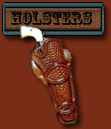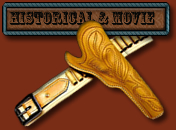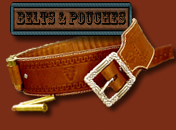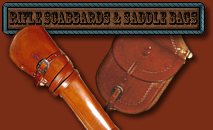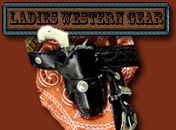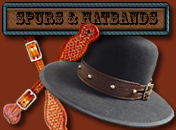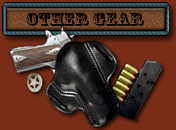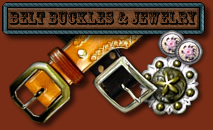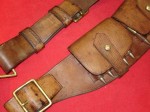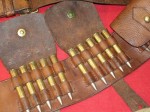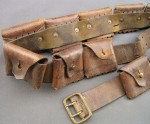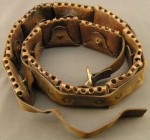BANDOLIERS
Click on photos for a larger image
We have always been interested in the various ways military, law enforcement, and civilians carried their ammo back in “the day.” The encyclopedia says there are two spellings and both are right “ban·do·leer or ban·do·lier” and explains that it is a belt fitted with small pockets or loops for carrying cartridges and worn across the chest by soldiers. It was usually slung sash-style over the left shoulder because most people are right handed. This keeps the belt off of the right shoulder where the rifle stock is going to be when shooting. In addition, the bullet loops or pouches are then in good reach of your right hand to reload. A second belt with ammunition pockets was often photographed being across the midriff. At this point we would like to give a thank you to Grant of Medicine Hat, Alberta, Canada for his gracious input and consulting on our bandolier research. This post and article will continually change as new data and photos are found
If you ask just about anyone, the name “ Bandolier” immediately brings to mind an image of banditos along the border or gringos fighting for gold with Pancho Villa, galloping soldiers with criss crossed belts full of rifle and pistol bullets, or Mexican revolutionaries invading New Mexico. When you begin to study the research you will find that there were many variations of this belt at the turn of the century and they were more complex than just loops on a belt.
The Bandolier’s popularity got a huge booster shot in the arm after the 1969 western “The Wild Bunch,” by director/co-writer Sam Peckinpah. You can clearly see the Pattern 1882 flap bandolier, as well as the open loop style, being worn by Ben Johnson as a member of an aging outlaw band on the Texas-Mexico border struggling to exist as the changing world at the turn of the century threatens to engulf them. The Bandolier next was constantly visible in the “Star Wars” series of movies. Up until this point most bandoliers, even pre-1900 styles were plentiful and could be purchased for a very low price. Now, with so many folks collecting and re-enacting both of these movies, prices for good examples often go for over $200.00 if they can be found. One hundred year originals are often brittle or moldy and are not suitable for rough use. Therefore quality reproductions are actively sought after. At this time, with our research we can not find an American made flap bandolier of any style available. Chisholm’s Trail will now produce bandoliers with the best quality possible and made in the USA. Steer clear of foreign reproductions, they are very thin and have a terrible chemical smell which just can not be removed.
Three basic styles were prevalent: those with exposed bullets and loops, others with the loops and bullets covered with a flap, and finally actual pockets with flaps. The number of bullets and placement varied greatly as well as the makers. Homemade bandoliers usually were just loops sewn onto a belt and secured with a single or double tongue buckle. Colors ranged from natural through the shades of brown and black. As bullets changed, the folks that wore bandoliers found ways to tighten or open up the loops to fit the newer cartridge sizes. Many leather crafters copied bandoliers for their customers when military sources did not provide enough or other sizes were needed. In the US we refer to items as Model number or name. In Britain the items are called Pattern this or that.
The most common flap styles were variants of the British and other commonwealth nations. These saw use from the Turkish Ottoman Empire to the Mexican revolution and on to WW1 & WW2. The photo on the left shows the common straight belt with loops next to the curved 1882 bandolier belt.
1882 PATTERN- The earliest style often seen, after the looped style, was the British 1882 Pattern Cavalry bandolier. This was for the Martini-Henry Rifle. The bullet loops were originally .50 caliber, but later .303 was added. The large loops will also hold any .50 caliber round, 45.70, or .410 shot gun shells. Each ten bullet loop section had a flap that covered them securing with two Sam Brown Studs and straps. There were four large flaps and two smaller flaps with a fewer number of shells. (We will be offering this version and will be making a single pouch for pant belt use ) (Original in the Chisholm’s Trail cowboy leather collection)
1888 PATTERN- Next was the 303 LEE METFORD “88” Pattern which had five flaps attached to a belt. Under Each flap were five bullet loops. Each flap was oval and secured with a strap from the bottom attaching to a Sam Brown stud on the flap itself. The color was darker brown. (We will be offering this version and will be making a single pouch for pant belt use ) (Original in the Chisholm’s Trail cowboy leather collection)
1901 PATTERN- The “01” Pattern had 12 pouches and flaps and the bullet end protruded through holes in the bottom of each pouch. The brass buckle has two tongues. Notice the rivets holding the pouches to the belt. (We will be working on this version and will be making a single pouch for pant belt use)
We are looking for an original of this style. If you have one you would sell or let us borrow for a pattern, we would be grateful!

